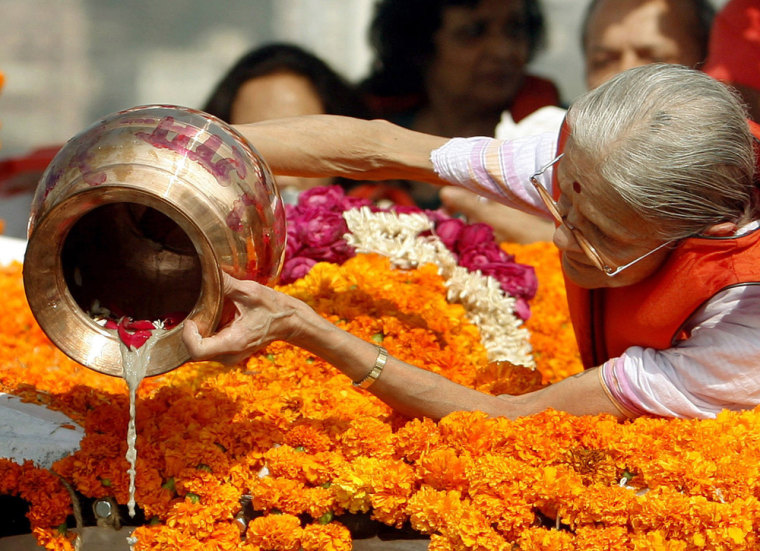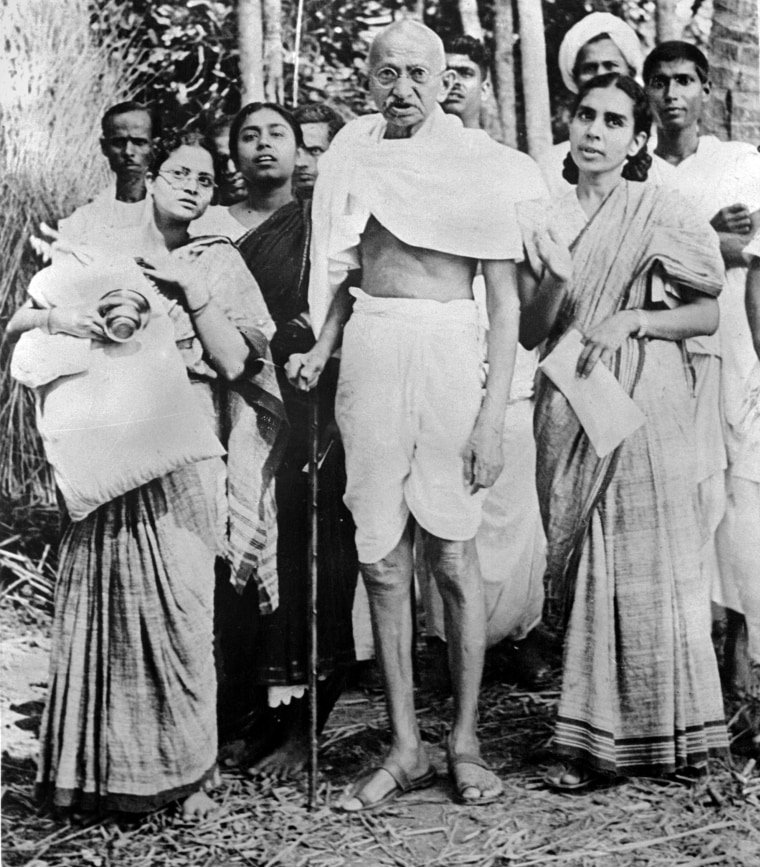Across the street from the house where Mohandas K. Gandhi was shot and killed 60 years ago Wednesday stands India's National Defense College, an institution that certainly would have troubled the icon of nonviolence.
It's not the only thing that would have disturbed Gandhi about today's India, a rising economic and military power that barely paused Wednesday to mark the anniversary of his assassination.
That's not to say Gandhi has been forgotten by this country of 1.1 billion people — he's still considered by most the moral conscience of the nation, and pictures of his wizened, smiling face are everywhere, from rupee notes to murals along the highway.
Gandhi's vision of the Hindu majority and Muslim minority living in peace, a vision for which he was gunned down by a Hindu extremist, has largely been realized, despite sporadic violence between the communities. India has had two Muslim presidents, and some if its wealthiest businessmen are Muslim, as are a number of its best-known film stars.
But in India, inequality is as often as conspicuous as consumption. The country that's minting tens of thousands of new millionaires each year remains home to about a third of the people in the world living on less than $1 a day.
"Gandhi is, in many ways, very inconvenient to modern India," said Pratap Bhanu Mehta, president of the Center for Policy Research, a New Delhi think tank.
‘An impossible standard’
Gandhi envisioned a country focused on its thousands of villages, where people spun the cloth for their own clothes and artisans produced what was needed.

"I just think he set an impossible standard; no country, not even India, can live up to Gandhi, to his ideals," said Tilak Menon, a 23-year-old engineering student shopping at a New Delhi market.
"What is so wrong about wanting the nice car, the good music system, the iPod, the modern house?" he asked. "Gandhi was admirable, yeah, but to live like he wanted we would all be monks."
Wednesday's commemorations were modest. In Mumbai, the country's financial and entertainment center, his great-granddaughter scattered some of his ashes in the Arabian Sea after a procession through city streets that attracted about 300 people.
And in New Delhi, President Pratibha Patil and Prime Minister Manmohan Singh laid wreaths at a memorial on the grounds of the house where he was shot months after leading India to independence from Britain in 1947.
India's TV news channels gave the anniversary just a few minutes. And newspapers buried the stories on their inside pages.
Muslims honor a Hindu leader
Yet even in today's India, with its roads choked by cars and farms being plowed under for malls and factories, there are those who leave work early to pay respects to the man known by everyone here as the Mahatma, or great soul.
"My family has prospered in India. We have done our business, made money enough to send my daughters to university abroad," said Siddiq Khan, a 52-year-old Muslim who on Wednesday went to the house where Gandhi was killed, which is now a museum.
If Gandhi had not preached and struggled against Hindu nationalism "who knows where we could be now?" Khan said.
